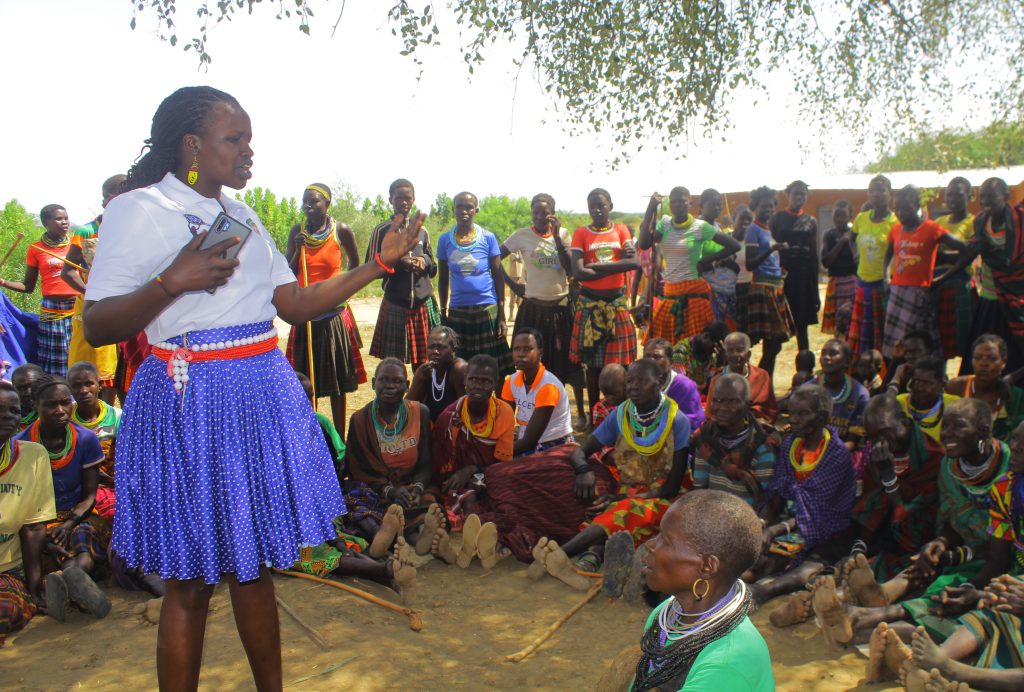
Margaret Lomonyang, an advocate for Indigenous Women’s rights, works with the Karama Cultural Group in Karamoja, a subregion more than 600 kilometres northeast of Uganda’s capital, Kampala. Here, a group of women, led by Margaret, is constantly looking for ways to fund various projects, including the creation of a community centre where women can gather to share traditional knowledge, express their concerns, and engage in daily activities.
This physical space not only brings them together but also serves as a centre of recognition where identities are forged, talents are nurtured, and a sense of community is built, with a focus on the common good.
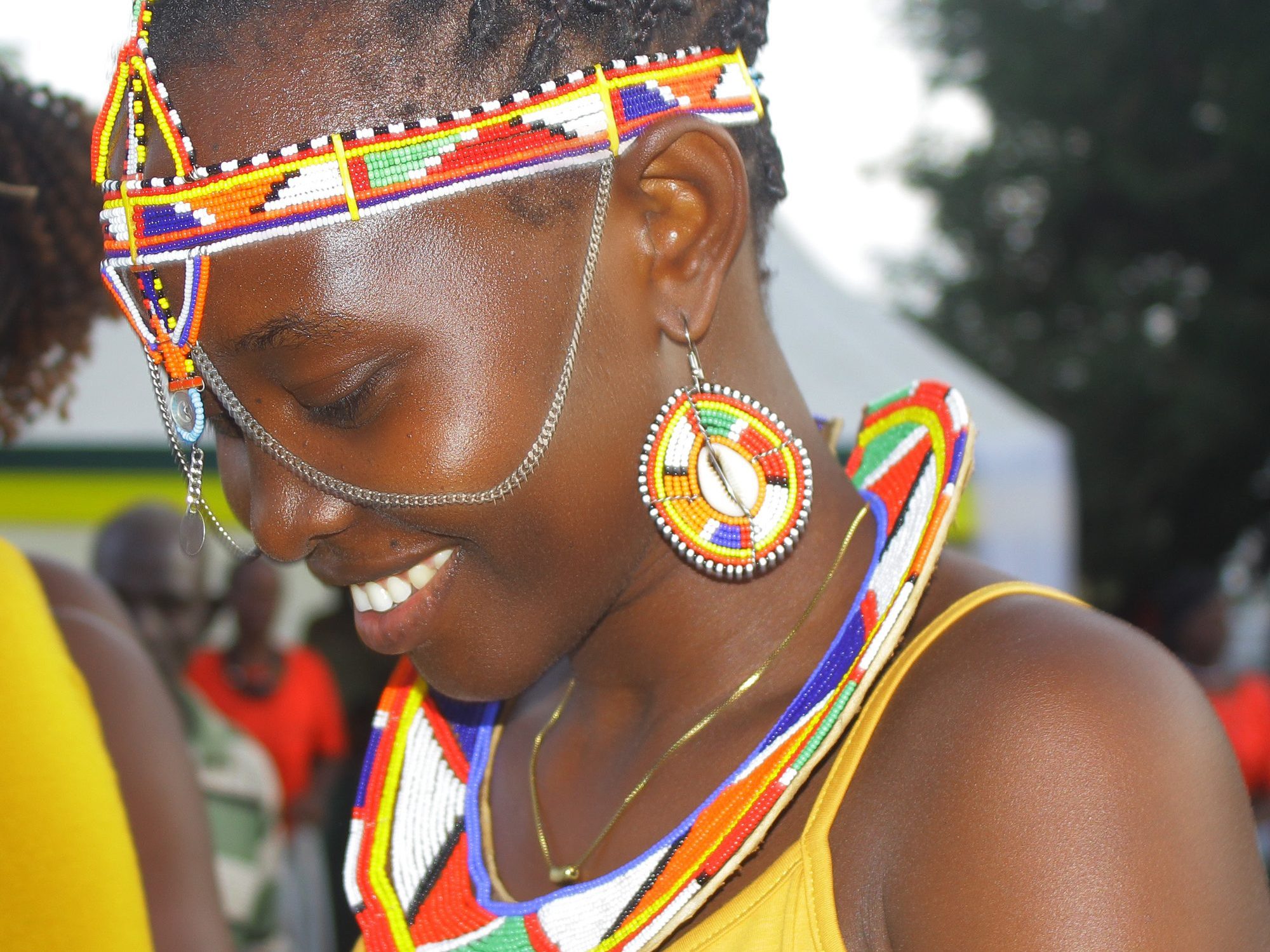
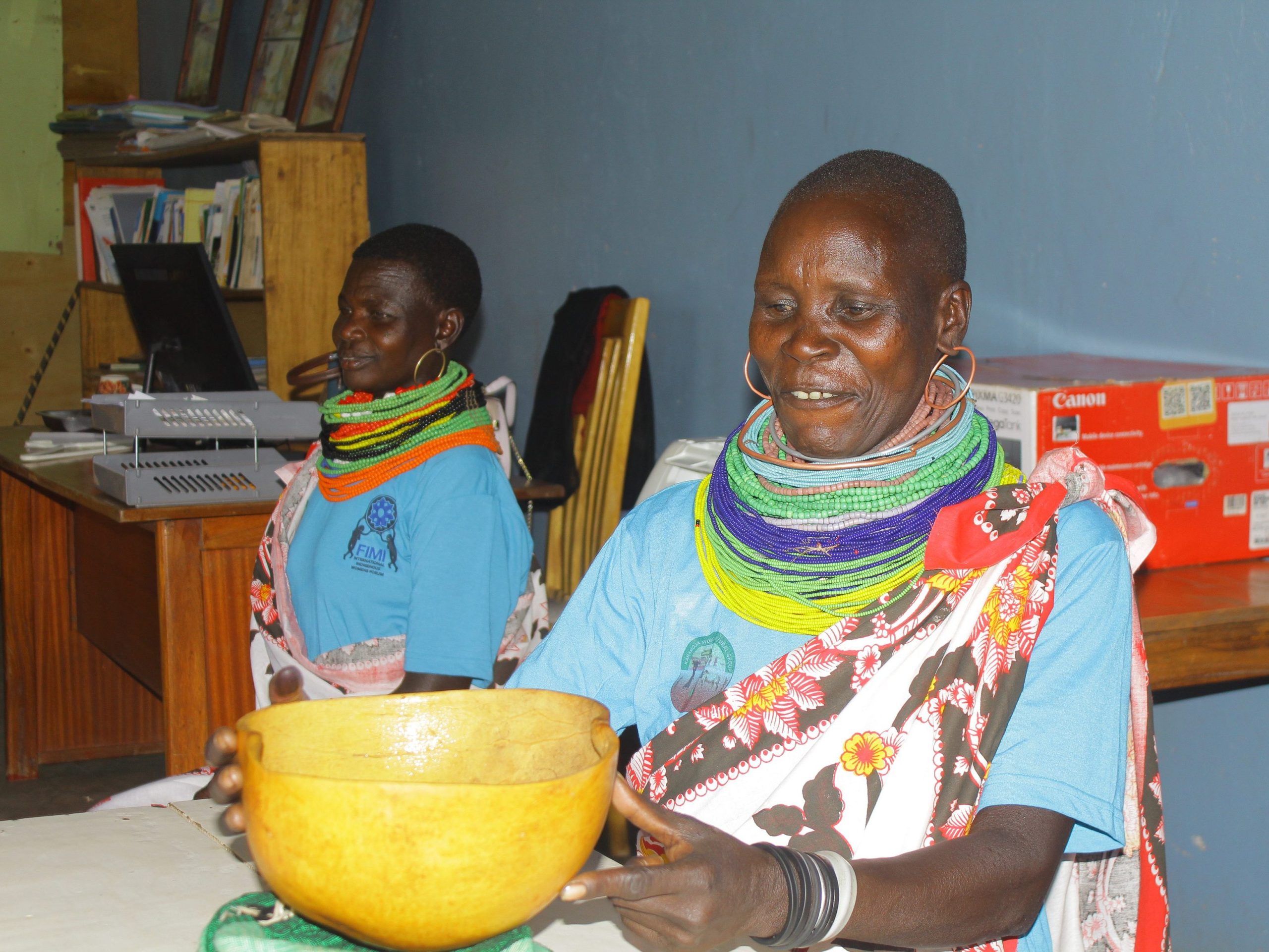
Drawing from her experience as a leader and member of an Indigenous community, Margaret describes how women have historically faced numerous cultural and social barriers, because they were traditionally denied inclusion, free expression, and decision-making, stripping them of leadership opportunities and access to a better quality of life.
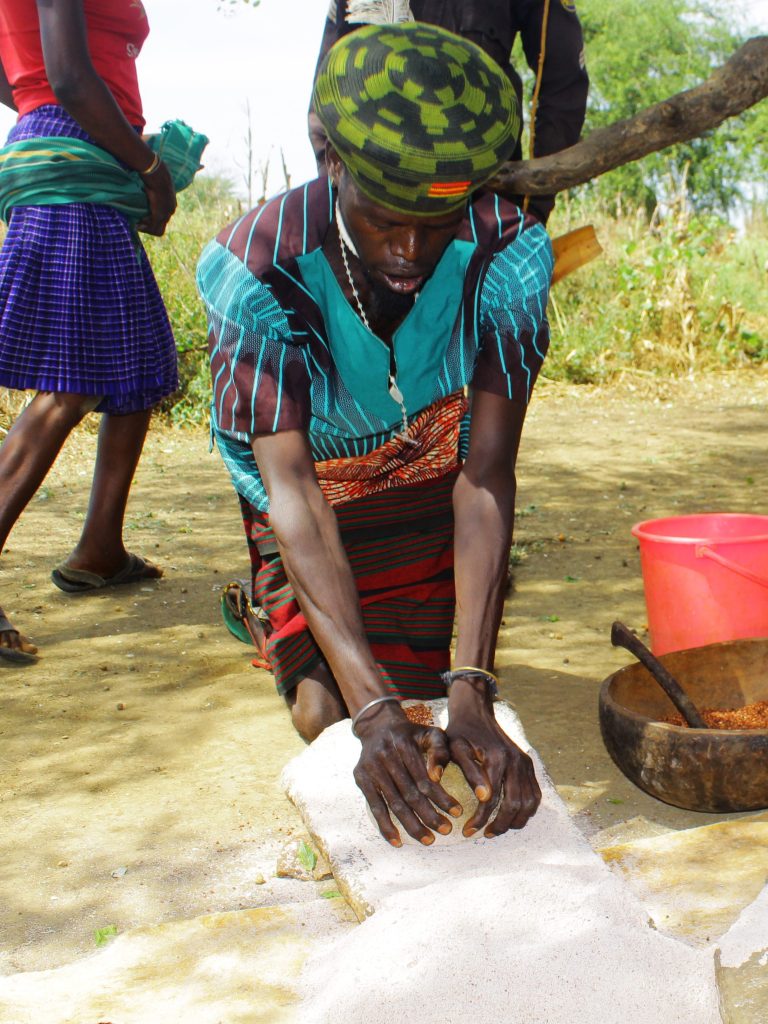
In response, the central objective of the Karama Cultural Group’s initiatives is to promote female leadership and the active participation of Indigenous women in community decision-making, as well as to strengthen their knowledge of their rights. Margaret has prioritized organizing workshops and discussions aimed at eradicating all forms of oppression from the minds of these Indigenous women and allowing them to recognize themselves as individuals entitled to attend public leadership meetings.
Despite cultural barriers that have historically relegated them to the background, these women are moving towards expressing their opinions publicly and holding significant positions. Their contribution is fundamental to building a more equitable future.
Margaret has been part of this transformation, alongside her team members. Now, in addition to being able to express the problems they face, these women represent their community and are identified as leaders, with some even running as women’s councillors and elected in different communities of the subregion.
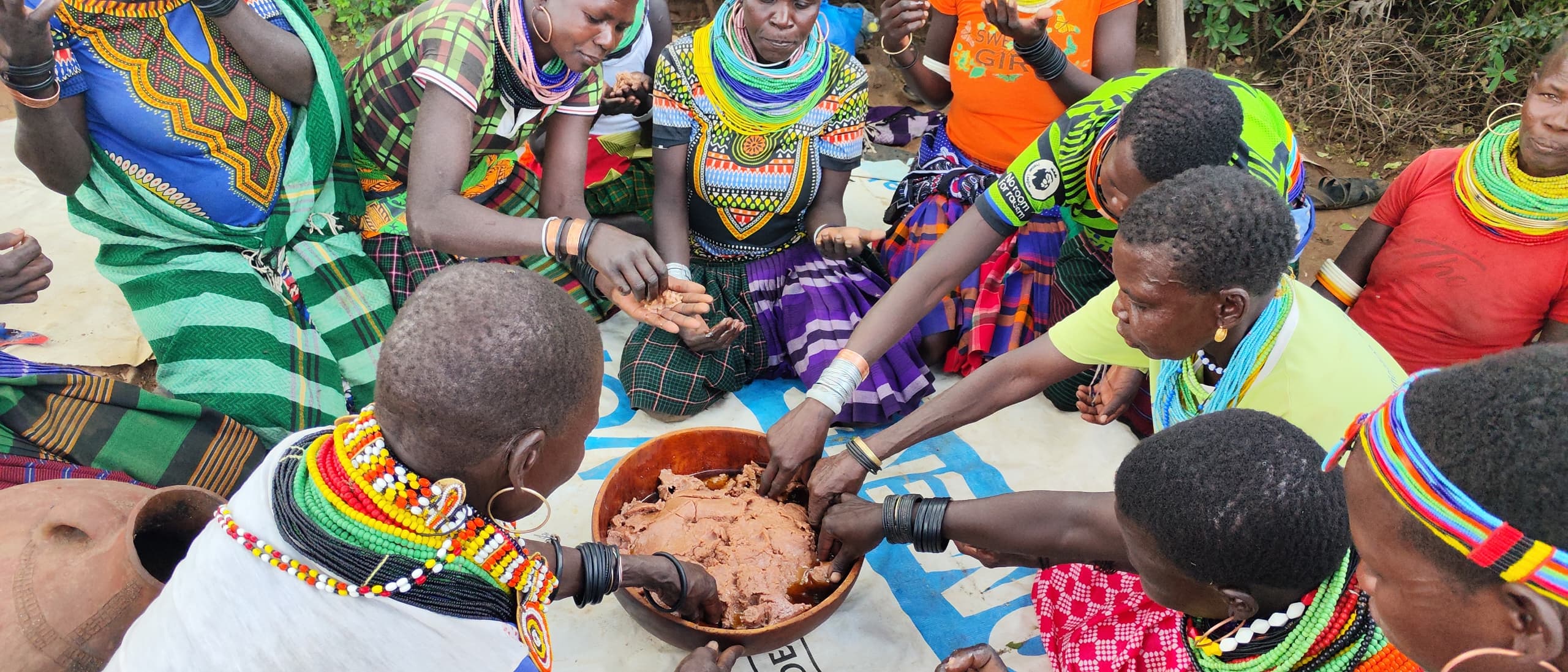
Culture, Land, and Sustainability
In Karamoja, Uganda, the struggle for land is deeply intertwined with poverty, displacement, and systemic neglect. Despite its mineral wealth, over 80% of the population lives in extreme poverty, with limited access to water, food, or education. For many, land becomes a secondary concern amid more pressing needs. Still, through collective action, communities are finding ways to defend their rights and care for their territories.
«Private land didn’t exist; it was all communal. Now we have a center where we address these issues because we’ve had many investors who just take people’s land. We have an association that fights for people’s rights»
Explains Margaret Lomonyang
The constant threat of eviction fuels a deep sense of insecurity. «You can say ‘this is our land,’ and the next day you discover you’ve been displaced, along with everything you have, and all the tears you’ll cry», she adds.
This uncertainty has led the community to raise awareness, organize, and demand attention from authorities. They are working on creating initiatives to raise awareness so that the authorities will address these issues and provide a fair resolution. This, and their work with NGOs and grassroots associations, is a vital step in facing the challenge of improving living conditions in Karamoja.
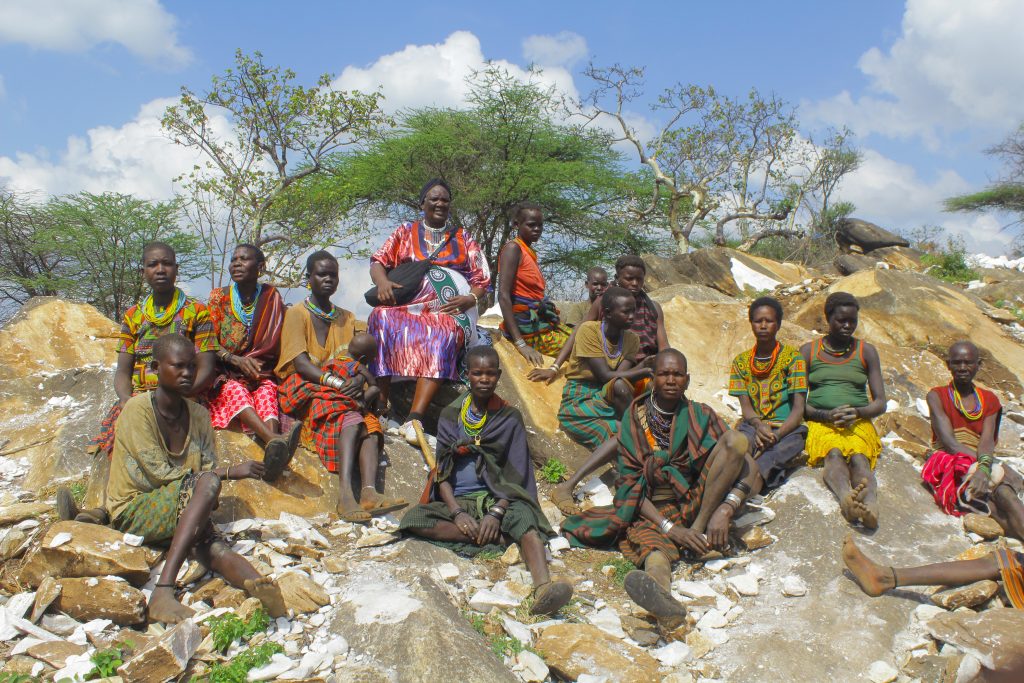
Education and Leadership: Pillars of Change
Lomonyang identifies lack of education as a major barrier to leadership and autonomy for the women of the Karama Cultural Group. While they have learned to identify problems and envision solutions, their voices are often dismissed. By providing them with access to education and resources that allow them to develop and lead, they can become influential leaders in their communities.
«We Indigenous women don’t have education. We don’t even know how to write; this makes us manipulable. We accept things without understanding them»
Margaret explains.
Education must be an important pillar of this program. Although current funding is limited, it is necessary to find creative ways to finance activities, including schooling. Even if they don’t make it to university, or even complete their basic studies, the group remains committed to ongoing advocacy for children’s education.
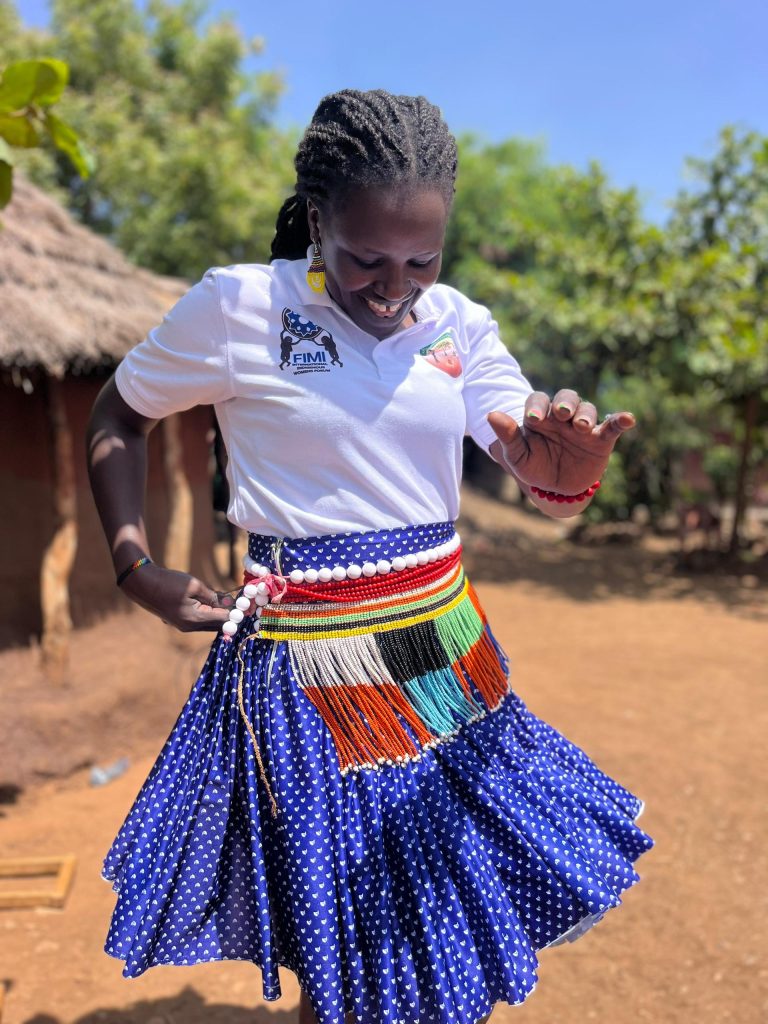
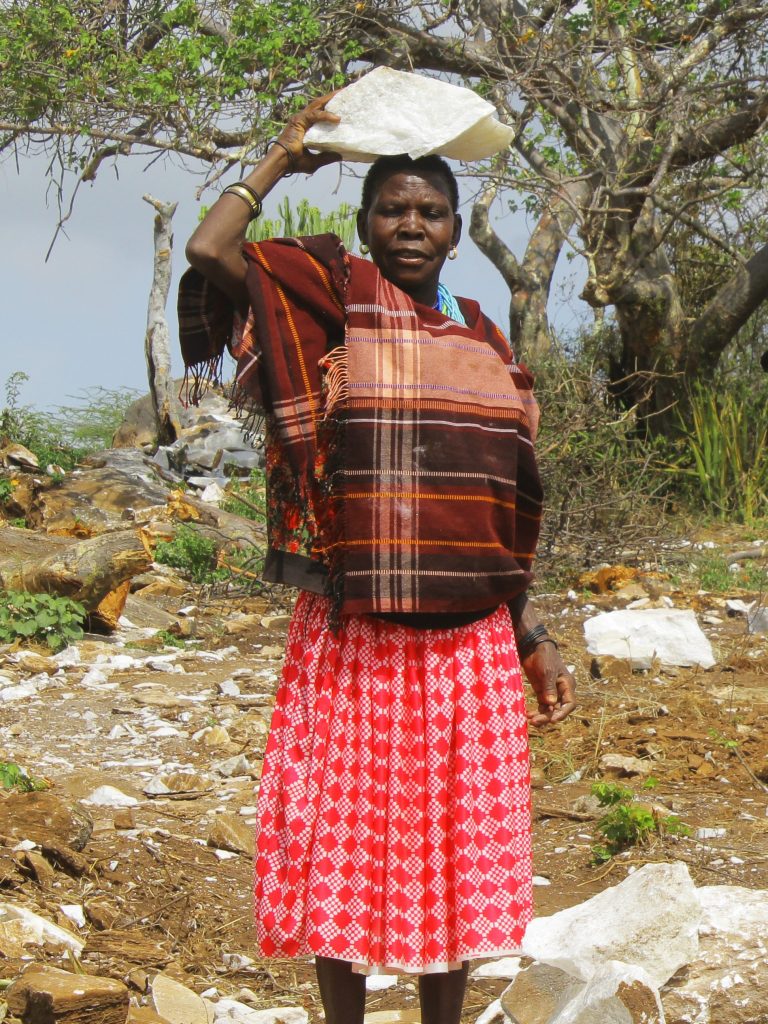
Building a Legacy
Margaret and the women of the Karama Cultural Center are building a path toward self-sufficiency. They dream of a life no longer dependent on external aid but rooted in sustainability, local knowledge, and community resilience.
«We must move towards sustainability. Yes, sustainability is key to our way of life»
says Margaret.
They have begun cultivating community gardens, exchanging Indigenous seeds, and reviving traditional foods to nourish both body and culture. At the same time, they are leveraging their talents—dancing, crafts, teaching—to generate income for schools and cultural activities.
«Women can work for each other, generating income for the entire group».

They envision small initiatives like sewing workshops and a group savings system where women can access loans for basic needs such as school fees.
«We could borrow from the common fund, use the money, and then return it so that other women can also benefit.».
Through shared responsibility and community-led solutions, they are not just surviving—they are building a legacy of strength, creativity, and hope.
Sustainable Living and Environmental Care
Indigenous Women work hard but lack support. They can be seen carrying firewood, walking long distances, and selling products for very little money—sometimes as little as a dollar. They do not have a sustainable way of life.
“Often, they depend on cutting firewood to survive, which destroys the environment. This also affects the climate, which has become more unpredictable. The animals are sick, and food insecurity deeply impacts the community. That is why it is necessary to redouble our efforts to protect the environment and find sustainable ways to live.”
A key objective is to increase female participation in the organization’s work in order to strengthen the impact and sustainability of their initiatives. The organization focuses its efforts on communities in remote areas with adverse socioeconomic conditions.
«An Indigenous person lives off nature, but nature is being destroyed. Climate change is causing great harm, and we must take urgent action to address it»
urges Margaret.
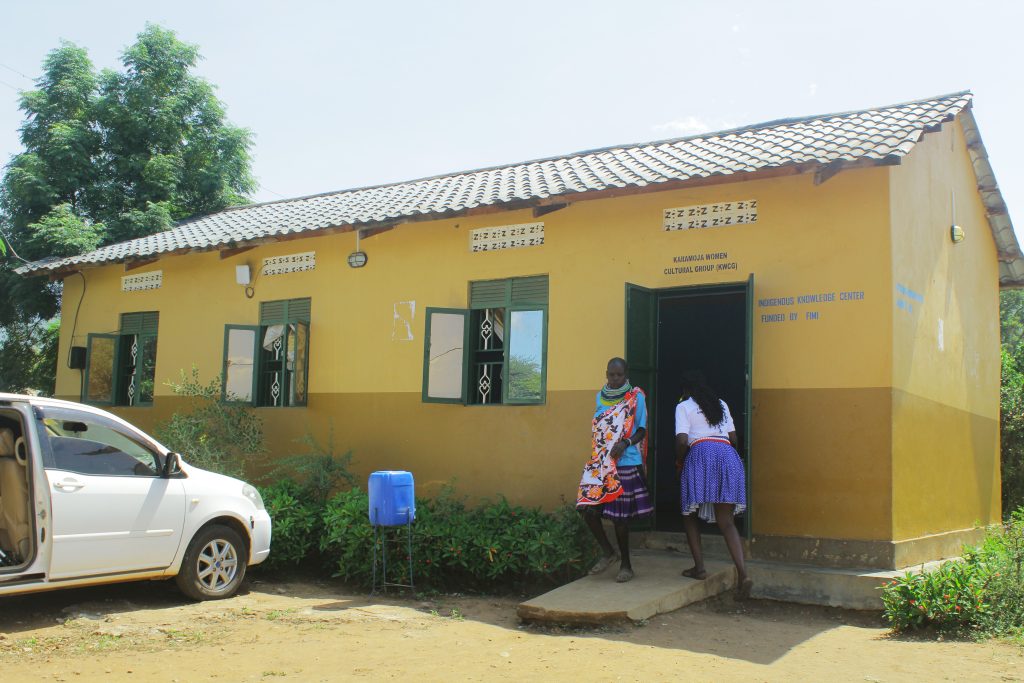
Cultural Day in Karama
The cultural group organized a Cultural Day to strengthen the region’s collective identity. This initiative was fundamental to the community, fostering unity and collective progress.
«We have organized a Cultural Day in Karamoja to strengthen our identity. These kinds of activities are essential for our community, as they allow us to come together and move forward as one.».
An inclusive space has been created where women can freely express themselves, exchange knowledge, and collaborate to find common solutions. The cultural event in Karama has not only helped preserve ancestral traditions but has also enabled them to be passed on to new generations.
Indigenous Women have shown through this initiative that they can take on leadership roles and become agents of change within their communities. Participants have emphasized that by unifying their voices and efforts, they can face and overcome the challenges affecting their people.
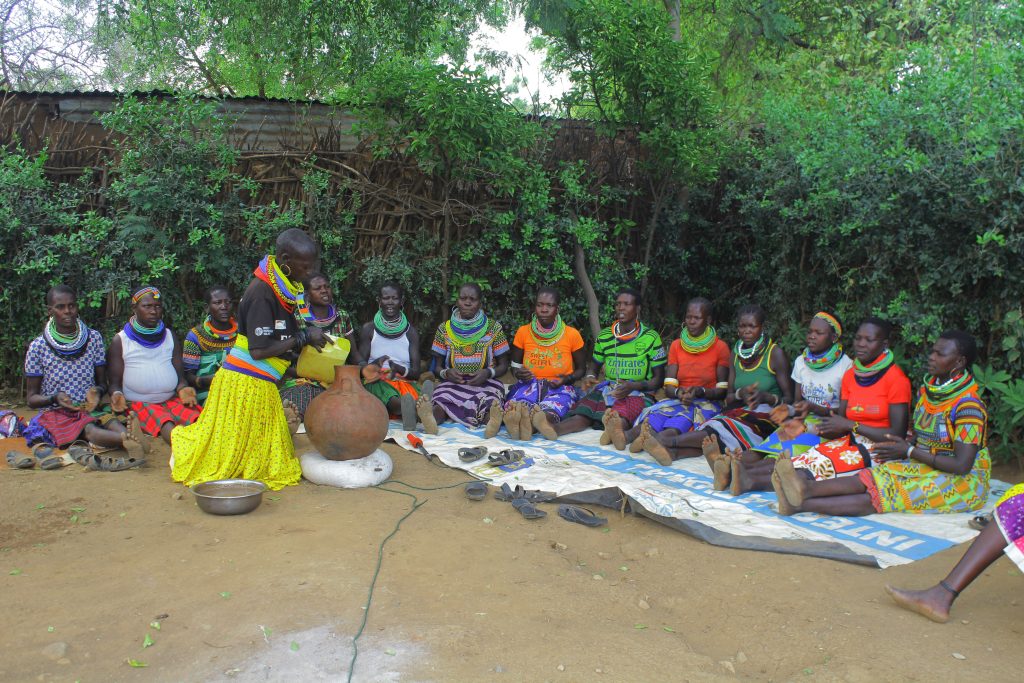
Gratitude to FIMI
The support provided has been essential in empowering women in their community. Thanks to the funds and training received, the women have made great strides, although they recognize there is still much work to be done. They express hope that this support will continue and that they can expand their initiatives to reach more women and more communities in need.
“I want to thank FIMI for the support provided—it has been essential in empowering women in our community. Thanks to the funds and training, we have made great progress, though there is still much to do.”
Maria Napeyok – Sub County Councillor LC3
Women in Karamoja have diversified their income by selling handicrafts and farming for local markets, increasing family autonomy. Despite economic challenges, they prioritize their children’s education as a key to breaking the cycle of poverty.
Climate change, deforestation, and resource exploitation have deeply affected their land. In response, women promote sustainable practices like energy-efficient stoves and Indigenous seed preservation, strengthening both environmental protection and cultural identity.
Though the path is long, their collective action—supported by allies—continues to expand, strengthening women’s leadership and community resilience.
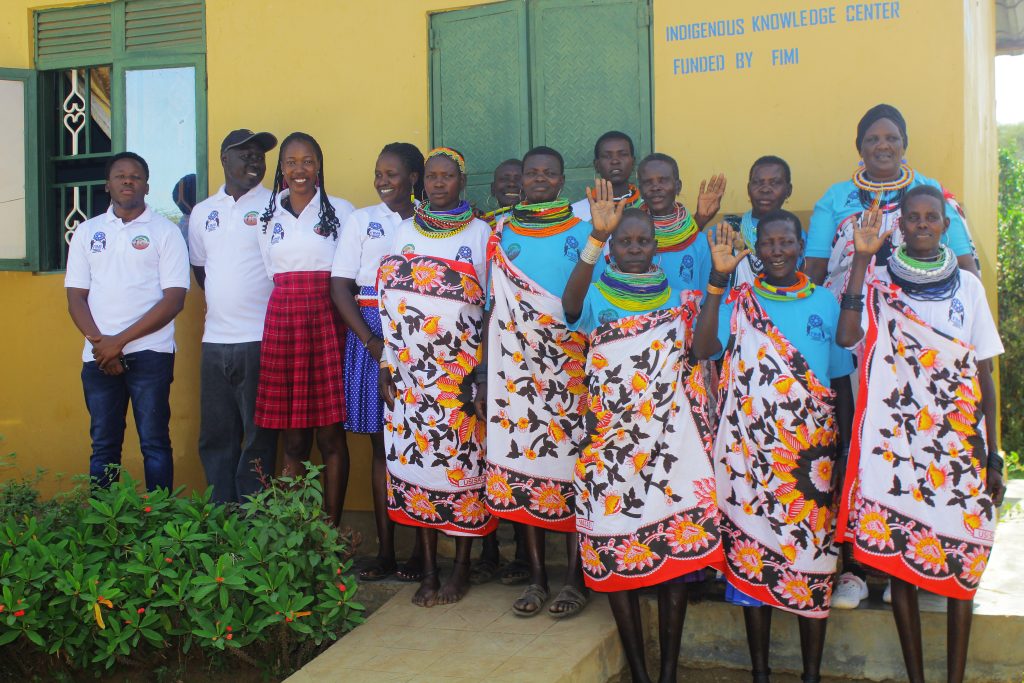
Logiel Gladys – Programs Officer
These efforts have gone beyond the household level, reinforcing social cohesion. The Knowledge Centre has become a space for learning and collaboration, where women exchange experiences and tackle shared challenges.
Reforestation and sustainable land use practices are helping to restore the environment. At the same time, women are involving young people in cultural and ecological workshops that preserve traditions and foster values of sustainability and self-reliance.
Despite limited resources, their progress is visible and growing. External recognition from organizations and local leaders has opened new opportunities for expanding their initiatives to other communities. A key shift has been the active participation of women in community decision-making processes—once unthinkable, now a reality.
Lynn Ivy Achan – Monitoring & Evaluation Officer
This growing political participation is inspiring other women to step up. Through vocational training and collective work, they’re generating income while preserving their heritage.
Their journey is a testament to the power of unity, persistence, and shared learning—showing that grassroots empowerment can truly transform communities.




